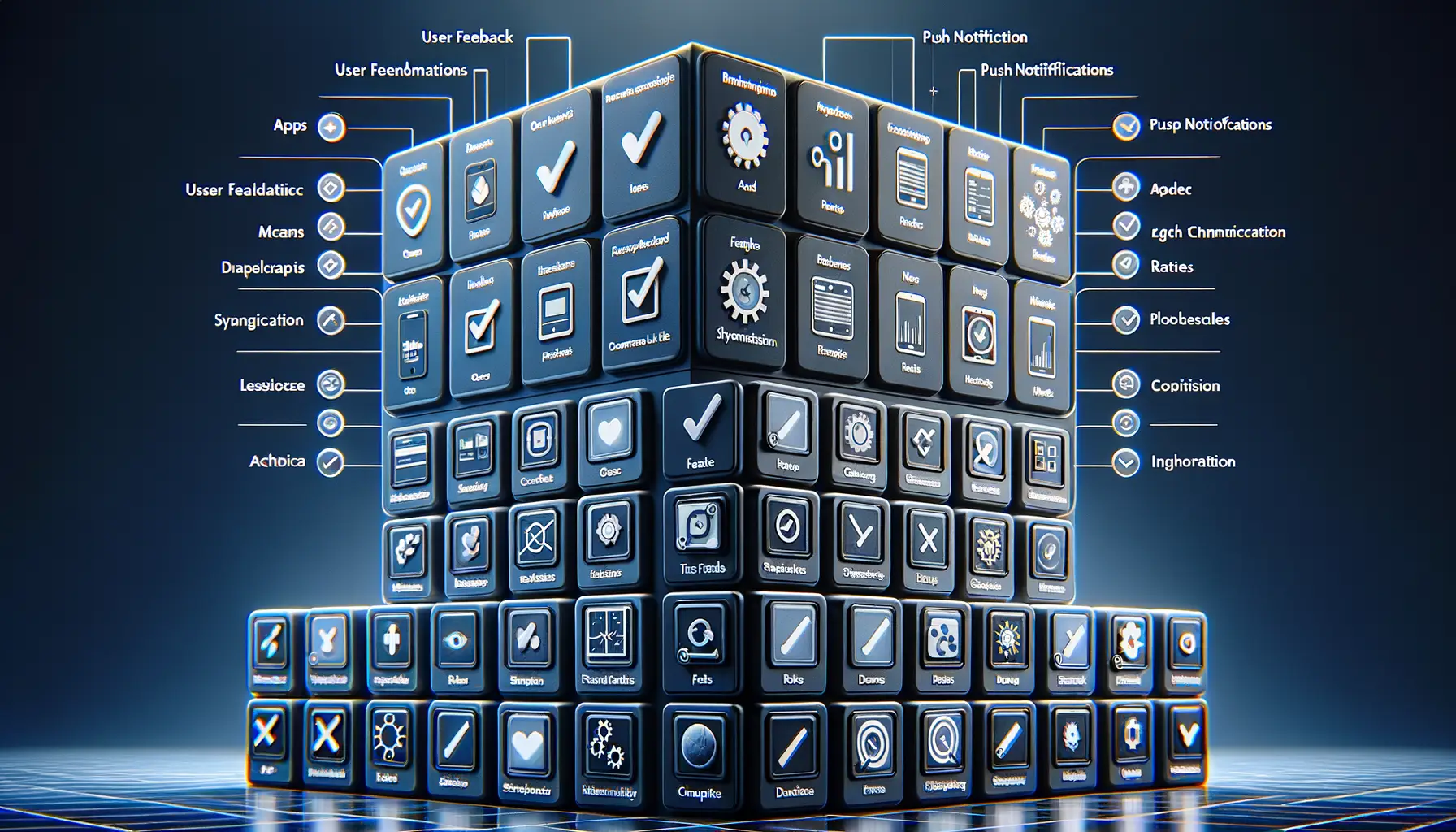Key Considerations When Choosing an AI Framework
The Heart of Your App: Why the Right Framework Matters
Choosing an AI framework isn’t just another line item on your to-do list—it’s the soul of your app. The right choice? It’s the difference between an experience that feels like magic and one that frustrates your users at every turn. But how do you decide?
Start by asking, what’s driving your vision? Is it sleek image recognition? Real-time natural language understanding? Each framework has its quirks, strengths, and hidden superpowers. For example, if you’re dreaming big about scalability, frameworks like TensorFlow have you covered. But if you want rapid iteration with a smooth learning curve, it’s hard to beat PyTorch’s intuitive design.
Make Your Checklist: What to Ask Before You Commit
Before taking the leap, think through these key considerations:
- Compatibility: Will this framework play nicely with your existing tech stack?
- Community Support: Is there a bustling ecosystem to lean on when things go south?
- Performance: Does it crush your use case—speed, accuracy, or both?
Remember, committing to a framework is like building a partnership—it has to grow with you. Choose wisely, and let your app shine.
Top AI Frameworks and Their Strengths

Powerhouse Frameworks You Need to Know
When diving into the world of AI frameworks, it’s hard not to feel like a kid in a candy store—so many choices, each offering its own unique flavor. Let me introduce you to some top players that might just steal your heart (and streamline your app development).
- TensorFlow: Picture a great multitasker who can tackle everything from deep learning to reinforcement learning with ease. Its strong documentation and scalability make it perfect for both startups and enterprises alike.
- PyTorch: The adventurer of AI. Loved by researchers for its flexibility and dynamic computation graphs, but equally adored by developers bringing ideas to life in production.
- Keras: Think of it as the user-friendly buddy of TensorFlow, offering simplicity without sacrificing power. A go-to for beginners but also powerful enough for pros.
Hidden Gems Worth Exploring
Don’t overlook smaller yet mighty players like MXNet, which shines in distributed training and excels on mobile devices, or ONNX, a universal translator allowing models to switch frameworks effortlessly—imagine peace between TensorFlow and PyTorch!
Matching Framework Features to Your App’s Needs

Unpacking the Essentials: What Matters Most for Your App?
Every app dreams big, but not all AI frameworks speak its language. Choosing the right fit is like pairing the perfect wine with dinner—it’s all about balance and complementing what’s already on the plate. First, pause and ask yourself: what does your app truly need?
Do you crave lightning-fast processing for real-time user experiences? Or perhaps your app demands deep learning capabilities for complex, multi-layered models? If you’re building a chatbot, for instance, a framework with strong NLP (Natural Language Processing) tools like TensorFlow or PyTorch might be your secret weapon. On the other hand, if scalability is your endgame, frameworks like MXNet, designed to scale while staying efficient, could work wonders.
- Flexibility: Look for frameworks allowing easy tweaking. Your app will grow, and so should the framework!
- Speed: Time matters. Whether it’s training or inference, pick a framework that doesn’t lag behind.
- Community Support: A bustling forum of developers can save you when the bugs creep in.
Consider this: choosing an AI framework is not just a technical decision, but a strategic one. Equip your app with the features that propel it from “just good” to unforgettable.
Common Pitfalls in Selecting AI Frameworks

Overlooking Compatibility and Scalability
Imagine building a house only to discover the bricks and mortar don’t match. That’s what it feels like when developers choose an AI framework without checking its compatibility with their existing tech stack or future growth plans. Will your framework play nicely with your hardware, software, and programming language? Skipping this step can cause costly rework or performance bottlenecks down the line.
And scalability—oh, the silent killer of promising projects! Many fall into the trap of picking a framework ideal for small experiments but utterly unfit for large-scale deployment. Don’t let today’s limitations blind you to tomorrow’s possibilities. Ask yourself: will this framework support millions of users when your app takes off?
Falling for Hype Over Practical Needs
It’s easy to fall in love with buzzwords and the latest shiny tool that tech blogs rave about. But here’s the catch: the most popular framework isn’t always the best fit for *your* app.
- Does it offer pre-built libraries or models tailored to your industry?
- Will the learning curve eat up your team’s time?
- How active and supportive is the developer community?
Chasing trends without asking these questions is a surefire way to invite frustration instead of innovation. Stay grounded in your app’s unique needs!
Future Trends in AI Framework Development

Revolutionizing the Way We Build AI
The world of AI frameworks is evolving at warp speed, and keeping up feels a bit like chasing a comet—challenging but exhilarating. What’s on the horizon? Brace yourself, because the future of AI framework development is blazing with innovation.
Expect frameworks to go beyond just being tools—they’ll soon become your creative collaborator. Imagine frameworks that can suggest the best models for your app based on just a few inputs or assess performance bottlenecks before you even notice them. This isn’t sci-fi; it’s coming fast.
Another trend? AutoML integration. Developers will spend less time wrestling with hyperparameters and more time focusing on groundbreaking ideas. With frameworks that automate tedious tasks, you might finally ditch those late-night debugging marathons.
- Interoperability: Frameworks will play nicer together, letting you blend TensorFlow’s power with PyTorch’s flexibility.
- Edge computing support: As apps move off centralized servers, frameworks will deliver AI magic on lightweight devices like your smartwatch.
Whether it’s better UI, richer visualizations, or smarter debugging tools, frameworks are gearing up to empower developers like never before. Can you hear the future calling?
